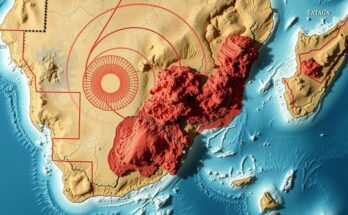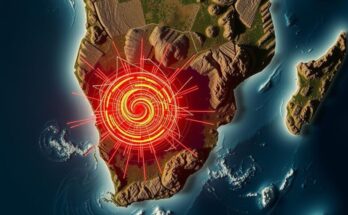Hassan Nasrallah has led Hezbollah for over thirty years, turning it into a powerful paramilitary force in the Middle East. Recent Israeli airstrikes targeted Hezbollah’s headquarters, allegedly seeking Nasrallah. Nasrallah, a charismatic leader with deep roots in Shiite communities and strong ties to Iran and Hamas, has maintained a hidden lifestyle for safety. His leadership has been characterized by regional confrontations and a focus on supporting Gaza amidst the ongoing Israel-Hamas conflict, positioning Hezbollah as a critical actor in regional stability and military engagement.
Hassan Nasrallah has been at the helm of Hezbollah for over thirty years, steering it into one of the most formidable paramilitary entities in the Middle East. Notably, recent Israeli airstrikes targeted key buildings in Beirut’s southern suburbs, purportedly aiming at Hezbollah’s headquarters and allegedly at Nasrallah himself. Nasrallah, a 64-year-old charismatic figure, has reshaped Hezbollah into a potent adversary of Israel while establishing alliances with Iranian leadership and Palestinian groups like Hamas. He commands a significant following among Lebanese Shiites and is viewed as a respected leader across much of the Arab-Islamic community. Despite his influential role, Nasrallah has opted for a lifestyle largely in hiding, primarily due to threats of assassination from Israeli forces. Nasrallah was born in 1960 to a modest Shiite family in Beirut, later relocating to southern Lebanon amid conflicts. His theological education and early work with the Amal movement paved his path to becoming one of Hezbollah’s founding members amidst the backdrop of the 1982 Israeli invasion. After the murder of Hezbollah’s leader in 1992, Nasrallah rose to become secretary-general. Under his guidance, Hezbollah claimed responsibility for driving Israeli military forces out of Lebanon in 2000. His status as a prominent leader escalated further following the inconclusive 2006 war with Israel. In the current geopolitical landscape, Nasrallah has adopted a proactive stance amid the Israel-Hamas war, initiating attacks on Israeli military posts, and labeling these actions as support for Gaza. He has maintained that Hezbollah’s activities serve to distract Israeli forces from engaging Hamas, asserting commitment to these operations until peace is established in Gaza. As the situation escalates, with increasing tensions between Hezbollah and Israeli forces, Nasrallah’s leadership remains pivotal in shaping the direction of the conflict.
This article delves into the life and leadership of Hassan Nasrallah, the longstanding leader of Hezbollah, a Lebanese Shiite militant group established during the Lebanese civil war and subsequently influenced by Iranian political and military ideologies. It explores Nasrallah’s ascension to power, his strategic transformations of Hezbollah, and the organization’s role in regional conflicts, particularly its engagements with Israel and its involvement in the Syrian civil war. The article also highlights recent escalatory events in ongoing confrontations with Israel, underscoring the implications of Nasrallah’s decisions on regional stability and Hezbollah’s military posture.
In conclusion, Hassan Nasrallah’s leadership of Hezbollah has profoundly affected the group’s trajectory and its significance as a key player in Middle Eastern politics. His ability to adapt to geopolitical changes, foster strategic alliances, and galvanize support among various factions marks him as a formidable presence. As Hezbollah continues to engage in military actions against Israel, Nasrallah’s actions will undoubtedly influence the broader regional dynamics and conflict resolution efforts moving forward.
Original Source: apnews.com




